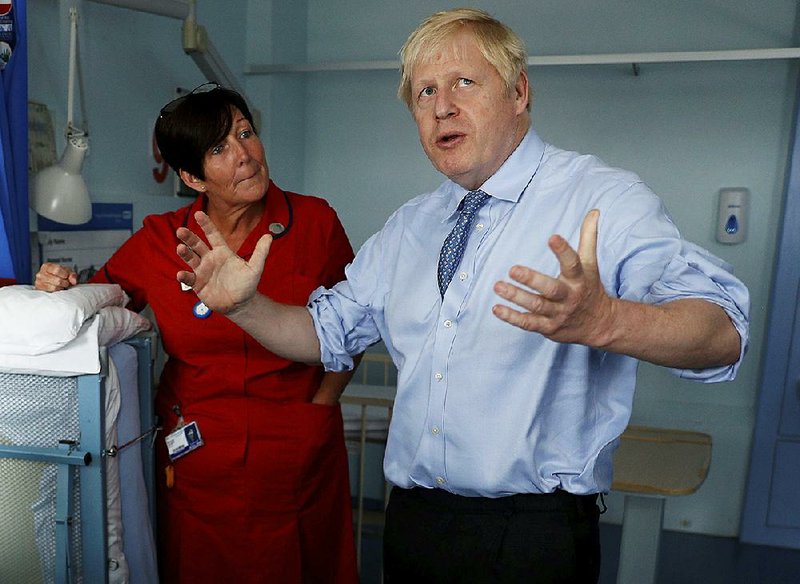BRUSSELS -- EU leaders on Tuesday slapped down an effort by Prime Minister Boris Johnson to renegotiate Britain's departure from the European Union, declaring that they were unwilling to agree to any deal that did not include ironclad assurances to ensure peace in Northern Ireland.
The rejection kicked off a season of negotiations ahead of Oct. 31, when Britain is scheduled to leave the European Union. Johnson rose to power last month on a hard-line platform that his country would depart the bloc in October, regardless of whether a deal was in place to ease the transition.
The European response came a day after Johnson demanded that EU leaders throw out an insurance plan, known as the backstop, that would ensure an open border between Ireland and Northern Ireland. The open border is a key part of the 1998 Good Friday Agreement, which calmed decades of sectarian violence.
"The backstop is an insurance to avoid a hard border on the island of Ireland unless and until an alternative is found," European Council President Donald Tusk wrote on Twitter. "Those against the backstop and not proposing realistic alternatives in fact support re-establishing a border. Even if they do not admit it."
[Video not showing up above? Click here to watch » https://www.youtube.com/watch?v=oVHitA5Vvfc]
In a four-page letter sent to Tusk on Monday night, Johnson said the "anti-democratic" Irish backstop needed to be scrapped if the two sides are to strike a new deal before Britain leaves the EU.
Johnson said it could be replaced with a commitment to "alternative arrangements" to be put in place "as far as possible before the end of the transition period."
"Time is very short," he added.
The current plan would keep the United Kingdom in the EU customs union indefinitely if the two sides fail to agree a different way to keep open the Irish border during a transition period until the end of 2020.
The European Union "regrets that the new United Kingdom government does not provide any concrete proposals" in its letter, EU Brexit negotiators wrote in a note to European diplomats Tuesday.
Tom Brake, the Brexit spokesman for the pro-EU Liberal Democrats, told the BBC that it was "not surprising" that the EU rejected Johnson's initial approach. Johnson, Brake said, was advocating solutions "that don't actually exist anywhere in the world at present."
Staying in the customs union would greatly restrict Britain's ability to make independent trade deals, one of the goals of Brexit supporters. It would also require British manufacturers to continue to obey most EU regulations, although they would have to do so anyway to keep selling to European buyers.
The exchange comes amid increasing concerns in Britain over the possible effects of the country leaving the EU without any transition agreement. Classified documents leaked to the Sunday Times over the weekend warned of food, medical and fuel shortages, as well as a return to a hard Irish border, if Britain leaves without a deal.
The government said the documents were outdated but conceded that there could be "bumps in the road."
The insurance plan has proved unpopular in Britain because it could trap the country partway out the door of the EU, but Johnson and his allies have yet to propose specific alternatives to guarantee an open border. Backers of Irish peace fear that if border controls were re-established, they would immediately become targets for partisans and could reignite long-dormant violence. But if Northern Ireland and Ireland have different regulations and tax policies, diplomats say, some form of border control will be necessary to prevent smuggling.
Johnson and Irish Prime Minister Leo Varadkar spoke for nearly an hour on Monday, as Varadkar emphasized the need for a "legally operable guarantee" to prevent a hard border.
Information for this article was contributed by Quentin Aries of The Washington Post.
A Section on 08/21/2019
